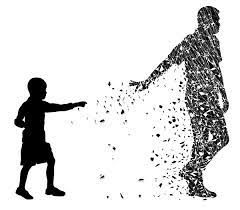Self-Help
Surviving Father’s Day When Dad Is Gone
Cherish good memories, and recognize how your dad helped shape who you are.
Posted June 14, 2024 Reviewed by Davia Sills
Key points
- Father's Day can be difficult when someone's father is deceased.
- It can help to use the day to honor father-like figures.
- Keep your father's hobbies and passions alive.
- Help your friends by sharing stories and photos of their late dad.

This Sunday, millions of Americans will fire up the grill, celebrate their fathers, and groan at corny "dad jokes." Some fathers will cheer as they unwrap the new high-tech gadget they’ve been eyeing, while others will force a grin and "Gee, thanks" as they model their brand-new novelty T-shirt. Father’s Day, first celebrated in Spokane, Washington, in 1910, is the day when we honor and celebrate the men who have supported, taught, and nurtured us—some with tough love, some with warmth, and some at a cool arm’s length.
But for many, Father’s Day may be bittersweet, marked by fading memories of what Dad was like before he died, or musings about what "could have been…" if our fathers were still alive today. My father died prematurely in 1992, so I have spent more than half of my 57 years without a living dad (or a Father's Day celebration).
I’m not alone. Millions of Americans have lost a father—far more than those who have lost a mother. That's because men typically die seven years younger than women. Among Americans age 50 and older, about 70 percent have lost a father, while just one-half have mourned the death of their mother.
Some lost their father suddenly and unexpectedly to a heart attack, car accident, COVID-19, or, even more dire, to suicide or murder. My father, like many blue-collar men of his generation who worked under grueling conditions in factories, farms, mines, and machine shops, died following a long-term chronic illness. Whether death comes suddenly (and surprisingly) or slowly (and expectedly), it's never easy, although with time, the sadness diminishes. Still, on Father’s Day, pangs of bittersweet nostalgia can re-emerge—especially if your friends’ social media shows off high-spirited scenes from their own celebrations of Pops.
So, how do you survive Father's Day, when your dad is no longer around?
Show gratitude to the other "father-like" men in your life.
Most of us have father-like figures who have supported or mentored us. On Father’s Day, extend gratitude and appreciation to the uncle, father-in-law, brother, or even a workplace mentor who helped you to become who you are today.
Relish those memories of your favorite moments with your dad today (and every day).
Father’s Day comes just once a year, but memories of fathers—even if dimming with time—can be a source of uplifting feelings anytime. This can be especially rewarding for those with siblings, who can share a good laugh about dad’s crazy antics and endearing (or embarrassing) habits. It’s not "clinging to the past" or "failing to move forward" when we celebrate memories of a dad who has passed. Bereavement researchers emphasize the importance of "continuing bonds" with our deceased loved ones. Thinking about how they might advise us when we’re faced with a challenge or musing over how proud they would have been of our latest accomplishment are mental exercises that can make us feel better and connect us to the past in healthy ways.
Support a cause or take up an activity that was important to your dad.
One of the most rewarding ways to celebrate a late father is by helping to uphold some of his goals or hobbies. Was your father a Veteran? A devoted dog dad? If so, donate to Wounded Warriors, the Humane Society, or another cause that he cared about deeply. Did he take impeccable care of the lawn and backyard? If so, try gardening or volunteer at a community garden plot.
If he was a talented photographer, find ways to frame his work and share it with family members. If he suffered from dementia in his final days, vow to sign up for an annual Walk to End Alzheimer's. By reading a novel by his favorite author, rooting for his favorite sports team, or listening to his favorite musician, your horizons will expand in the process.
How can you support friends, for whom celebratory BBQs with Dad are a thing of the past?
Ask questions about him.
We’re often afraid to ask our friends and family members about their loved ones who have died. We worry that we’ll upset them or that it's awkward to talk about the dead. My experience as a bereavement researcher has taught me one thing: People are dying to talk about their deceased relatives (no pun intended). They want to share their memories, their funny stories, or even recount the details of their loved one’s death—trying to make sense of what happened on that fateful day.
Survivors often have few opportunities to talk about their loved ones who have passed; they’re afraid that they’ll be a "downer" at a party or that it seems like they’re clinging to a ghost from the past. Providing an opportunity to talk about the dads who are no longer with us can be cathartic for the survivor. And, nine times out of 10, these conversations will be filled with funny stories from childhood or amusing accounts of how we’ve inherited some of our dad's quirks—his corny sense of humor, tireless work ethic, or penchant for singing loudly in a "fake opera" voice. This can help to make Father's Day a celebration of all dads, even those no longer with us.
Share your stories and memories.
Children love hearing stories and discovering what their parents were like when they were young. We pore over old family photos and chuckle at the hairstyles in old high school yearbook portraits because we desperately want to know, “Who was Dad before he was my dad?”
If you have stories or memories of your friend’s late father, share them! An entertaining new tidbit or never-before-seen photo may be the best gift you can give your friend—a new glimpse into the man who made them who they are today.




